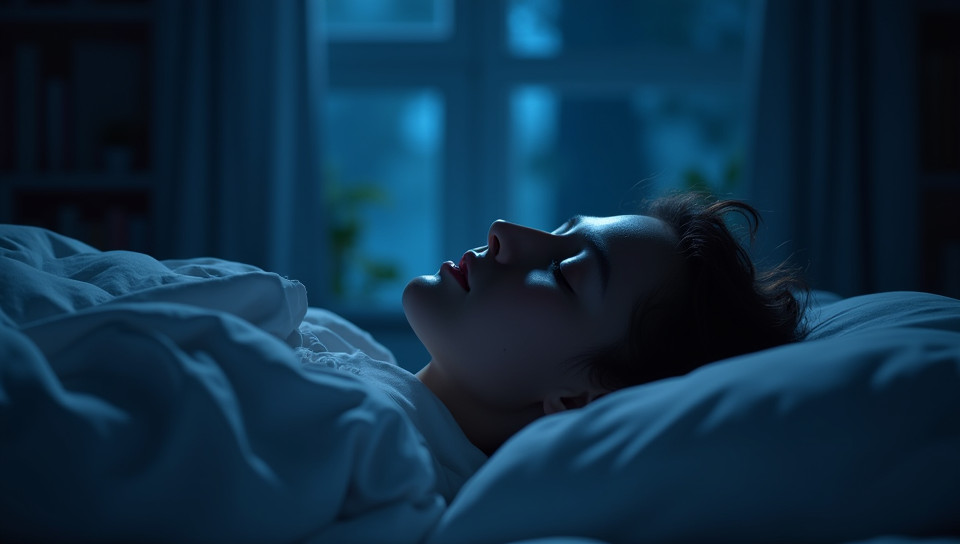Melatonin levels increase during darkness 68%

The Dark Secret to Better Sleep: How Melatonin Levels Respond to Darkness
As we navigate our busy lives, it's easy to overlook the subtle yet crucial cues that regulate our sleep-wake cycles. One such cue is the way our bodies respond to darkness, which plays a significant role in determining melatonin levels.
The Science Behind Melatonin
Melatonin is a hormone produced by the pineal gland, a small endocrine gland located in the brain. It's often referred to as the "sleep hormone" because of its role in regulating our sleep-wake cycles. When light enters the eye, it sends signals to the suprachiasmatic nucleus (SCN), which in turn suppresses melatonin production. As the sun sets and darkness falls, the SCN signals the pineal gland to produce more melatonin.
The Effects of Darkness on Melatonin Levels
Darkness triggers a chain reaction that ultimately leads to an increase in melatonin levels. This process is crucial for our bodies to prepare for sleep. Here are some key effects of darkness on melatonin levels:
- Increased melatonin production
- Suppression of cortisol levels (the stress hormone)
- Regulation of the body's circadian rhythms
- Improved sleep quality
The Importance of Darkness in Sleep Cycles
The connection between darkness and melatonin levels is more than just a coincidence. It's essential for our bodies to experience a natural drop in light exposure to signal the onset of sleep. This is why it's recommended to maintain a dark environment during sleep hours, using blackout curtains or blinds if necessary.
Conclusion
In conclusion, the relationship between darkness and melatonin levels is a vital aspect of our sleep-wake cycles. By understanding this connection, we can take steps to improve our sleep quality and overall well-being. Whether it's creating a dark sleep environment or avoiding screens before bedtime, being mindful of our exposure to light can have a significant impact on our bodies' natural rhythms. By harnessing the power of darkness, we can unlock better sleep and a healthier lifestyle.
- Created by: Marcia Costa
- Created at: Oct. 13, 2024, 10:08 p.m.
- ID: 12531









